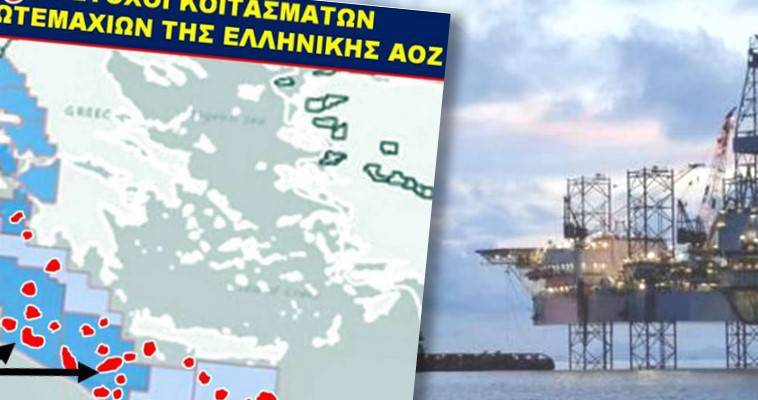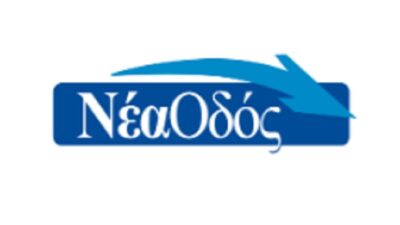Antonis Foskolos: Total starts work west and southwest of Crete – The geopolitical implications
15/07/2020
On July 7, TOTAL head of hydrocarbon research for the Caspian and Southern Europe regions, Bernard Clement, had an important meeting with the Secretary General of the Greek Ministry of Energy, Ms. Alexandra Sdoukou, and the new CEO of the Hellenic Hydrocarbon Management Company Aristophanes Stefatos.
At this meeting Mr Clement presented: First, the schedule of 3D geophysical surveys, which will begin west and southwest of Crete in the fall and will end in March 2021. Second, the well-founded optimism for the discovery of hydrocarbons.
The importance of sound optimism for locating hydrocarbons at sea depths above 2500 meters means that the gas fields are large, figure 1. With this move the French upgraded the geopolitical position of Greece to the maximum. At a time when tourism is lagging behind due to the coronavirus and the recession will exceed 10%, 60% of Greeks say that the number one problem in Greece is unemployment, the French come and tell Greece that it will not be the only a country that will not only transit natural gas from the Eastern Mediterranean through East-Med, and the Caspian Sea through TAP, but will also be a producer of natural gas.
Figure 1. The 14 objectives that the consortium Total, Exxon-Mobil and ELPE will research starting in the fall of 2020.
In Figure 1 we see 14 targets / deposits which are estimated, by Giannis Basias and Elias Konofagos to have 2.5 trillion m3 of natural gas (88.2287 trillion cubic feet). Personally I think there are more stocks due to the extent of the coral reefs. We shall see. The value of these stocks at a price of $ 8/1000 cubic feet tells us that the value of the deposit stands at $ 706.3 billion. According to Greek law 4001/2011, known as the Maniatis law, 20% of the gross value, 141 billion, goes to the state and 5%, 35 billion, will be distributed to the Regions mainly of Crete and secondarily of Peloponnese and Attica.
Also important is that the annual production, if we exploit all the deposits at the same time, will be of the order of 83 billion m3 of natural gas which will be channeled mainly to Europe. One understands the colossal importance for Greece. East-Med will transport 15 billion m3 of natural gas from the Eastern Mediterranean and TAP another 15 billion m3 of natural gas from the Caspian to Europe while Greece alone will be able to export to Europe, for 30 years, 83 billion m3 of gas per year.
Huge geopolitical upgrade
This annual production of 83 billion m3 of gas for 30 years is equivalent to the daily production of 1,500,000 barrels of crude oil which would generate jobs for 53,000 people in the primary sector and 150,000 people in the secondary sector. And how much revenue will the public sector have from the income taxes of 200,000 employees for 30 years?
Here we must add that in order for these deposits to come into production, 5-6 billion dollars will have to be invested for each deposit of the order of 1 trillion. m3 of natural gas, ie for the 2.5 trillion m3 of gas the joint venture of Total Exxon-Mobil and ELPE will have to spend, approximately, $ 15 billion. These amounts can only be outlaid by very large companies.
DEPA should also become active very quickly. By the time production begins, the way in which the gas will be transported should have been made clear. By pipeline from Crete to Europe or by using LNG ships. So construction of liquefaction and gas storage stations with investments to the order of billions of dollars in Crete.
From 1997 until 2027 Greece will be importing Russian gas and exporting 60 billion euros in foreign exchange for something it already has. Greece will be giving jobs to the Russians, while Greeks remain unemployed. Greece imports expensive natural gas while its own will be at least 30% cheaper. I hope this transaction stops when Greece starts pumping natural gas. Greeks need jobs.
Ongoing research since 1963
For the record I will mention that the geological research south of Crete started in 1963 by the University of Utrecht, the Netherlands. Then in 1968 the baton was taken up by the universities of California La Jolla Campus, Texas A&M, and Woods Hole Oceanographic Institute of Massachusetts where with funding from the US National Science Foundation and in collaboration with the University of Edinburgh they made 5 boreholes 4000 meters deep each.
The cores and fragments from the drillings are kept at the Core Repository of the University of Columbia, the university where the current Greek prime minister studied. In 1978, the University of Paris became actively involved in research, with Le Pichon and D’Angellier identifying three basins that may have hydrocarbons. One west of Corfu, one southwest of Crete and one southeast of Crete. Afterward, Imperial College, three German universities in Kiel, Hamburg and Bochum, the Institute of Oceanography in Barcelona, the Institute of Oceanography in Trieste and the University of Trieste took over.
Also since 2003 the geophysical survey companies CGG-Veritas and TGS-NOPEC have been sweeping/sounding the Libyan Sea. A veritable treasure trove of research has been undertaken south of Crete with thousands of publications and no one in Greece knows anything. In Greece, former minister G. Maniatis begun geophysical surveys in 2011 within an area of 220,000 square kilometers. P. Skourletis took up the baton a little late with a delay of 2.5 years and then G. Stathakis who finally signed the exploration contract for the exploitation of hydrocarbons west and southwest of Crete with the consortium Total, Exxon-Mobil and ELPE in the spring of 2019. The contract was brought to the parliament in September 2019 by energy minister Hatzidakis for ratification. After 1 year, the French are beginning the explorations west and southwest of Crete.
Important parts in the research in the south of Crete were played by the doctoral dissertation of Dr. Angelos Maravelias that took place under the supervision of Professor Avraam Zelilidis, EDEY (Hellenic Hydrocarbon Resources Management SA) under the leadership of Dr. Giannis Basias, Teresa Fokianou, former president and technical director of DEP-EKY (Public Petroleum Corp. of Greece, Exploration & Exploitation SA), Dr. Elias Konofagos and the author of this article who many called a fool when since 2012 he had been saying that there are hydrocarbon deposits south of Crete. It is now a fact beyond any doubt that the French are leading Greece to growth at a time when the Greek economy is not doing well. Yes, Greece is not just a transit hub for gas to Europe with 30 billion m3 per year but also a country that can supply Europe, as it now stands, with another 83 billion m3 of gas per year for 30 years.






